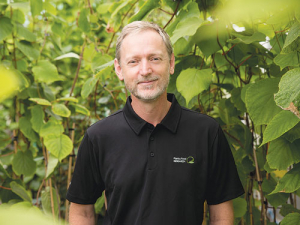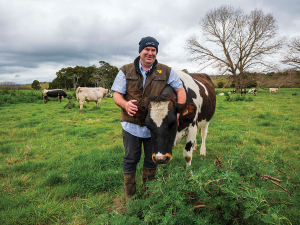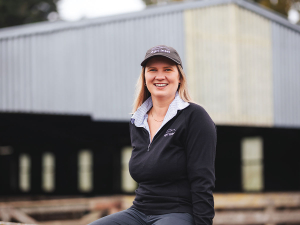A huge shift has occurred in the marketing sophistication of the horticulture industry, says Plant & Food Research chief executive David Hughes.
“You’ve moved away from the point where you are exporting product and a country of origin; you are not just selling apples any longer. You are selling a Jazz or another brand of apple,” Hughes told Hort News. “There is a sophisticated marketing programme behind it and sophisticated quality standards. Consumers have high expectations about what they are buying and they are certainly not comparing how many dollars per kilo is in this big bag.
“They may even be buying them as a single one-off item. We saw very expensive, single Envy apples in the Chinese produce shops. You bought a single apple and you chose it quite specifically for the brand of apple.
“It is a high-engagement purchase with not insignificant sums of money for a single item. It is similar to people thinking about which bottle of wine to buy -- choosing a particular brand because you like the experience and you like the brand because it matches what you want.
“People are starting to think about primary produce in the same context; that is pretty exciting. It matches the increasing engagement with food particularly in western countries. If you look at YouTube it is full of cat videos, but if you look at Instagram it is full of food photos.
“People are thinking hard about what they are eating, not just in a negative context of ‘will it make me fat?’ but in a genuinely interesting dialogue about what they are eating, where it has come from, where is the origin, or the culinary style they are engaging with: ‘what does it say about my values and my belief in my food choices?’
For Plant & Food Research that calls for “a whole of pile of sophisticated science”. Achieving a very high quality product that matches people’s values can present significant scientific and technical challenges.
Low residue is an example, he says.
“It takes a lot of sophistication to grow high quality produce that looks great, tastes great, lasts when it crosses the ocean, does all those things and yet do that with a very low input.
“That is a tremendous amount of value-add, and it is not from secondary manufacturing but from sophisticated production of primary products.”
Hughes says he is hugely optimistic about the potential of the horticulture industry to keep growing its value-add and scale of exports. Plant & Food Research has been growing at about 8% per year for the last four years and will probably have to keep growing to meet the demands of the sector.
“Science is becoming a big team game. Once you gave Nobel prizes to individuals, but increasingly in science you give prizes to teams of people. A good example of that was the PM’s science prize awarded to Plant & Food Research for [kiwifruit disease] Psa work. We had 100 people on that citation and that was a harsh cut-off. That is an enormously big team tackling a very complex question needing answers in great urgency.”



















